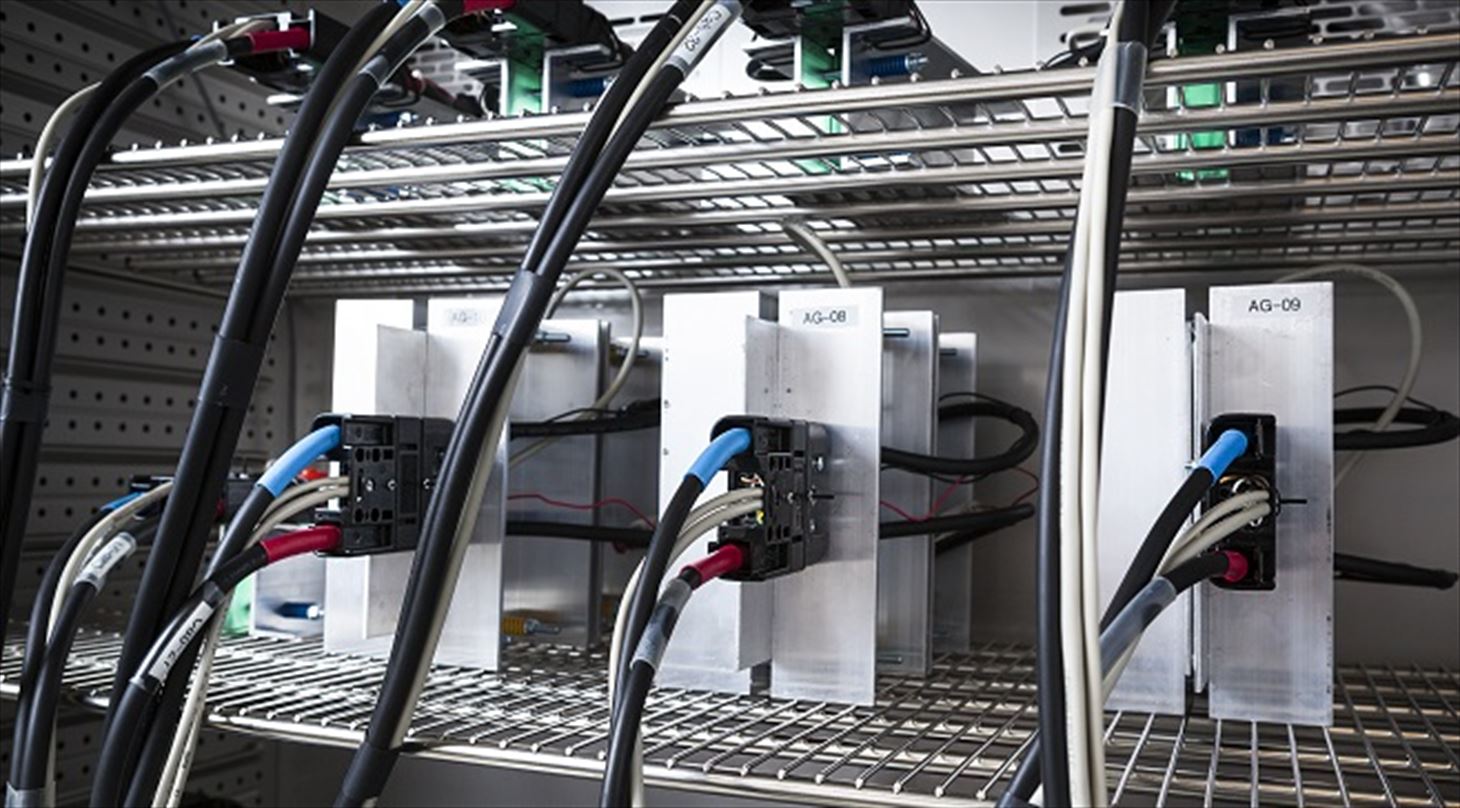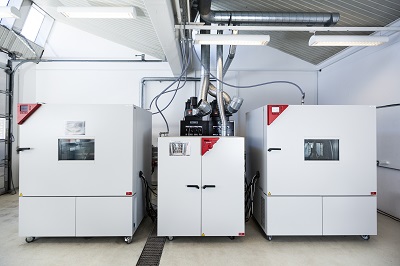
Battery degradation laboratory
To predict even a rough expected battery life in a specific application, it is necessary to know details about the environmental and load conditions for the batteries during use. Furthermore, details about the battery degradation under different conditions must be known.
Danish Technological Institute has a battery laboratory offering degradation tests. Read more on the laboratory and the tests they offer here.
Cycling of battery cells
In the DTI degradation laboratory, battery cells are cycled according to fully programmable load conditions using a dedicated multi-channel electrical power supply. Static cycling and dynamic cycling are available. Electric data and temperatures are logged individually for each battery cell. During cyclic load, the air temperature is kept constant. A number of temperature cabinets with different temperature settings are used for this purpose.
At regular intervals, the characteristic performance of the battery-cell is measured at room temperature to compare all battery cells under uniform conditions. The performance tests include capacity and impedance measurements.
Mapping all relevant degradation data versus all parameters are very time consuming and expensive, since a high number of battery cells must be worn down. DTI can test in accordance with standards but often a simpler and more pragmatic direct approach is chosen in consultation with the customer. Designing a dedicated test matrix in corporation with the customer matching the actual application, reduce the number of tested cells dramatically and can accelerate the testing and reduce the complexity of the data processing and analysis.
Lithium batteries
For lithium batteries the following degradation are considered the dominant:
Calendar life – the fact that lithium battery cells degrade also when not in use. The degradation rate depends on temperature and State of charge.
Operation related degradation are influenced by a combination of load conditions and environmental conditions:
- Temperature accelerated degradation (especially in combination with e.g. C-rate)
- C-rate accelerated degradation (especially in combination with low temperature charging)
- State of Charge (SoC) (Active used share of available capacity).
- Rest-time between charge – discharge and discharge – charge phases.
- Mechanically pressure on the cell (especially pouch cells)
There are other failure and degradation mechanisms also but of less predictable nature.
Degradation at lower temperatures
DTI has a special focus on degradation at lower temperatures. Many battery producers do not specify any details about “cold degradation”. Without being aware of the limits, some products with batteries may have very low performance or not be usable in low temperature conditions.

Picture from degradation laboratory showing temperature cabinets and the multichannel power supply